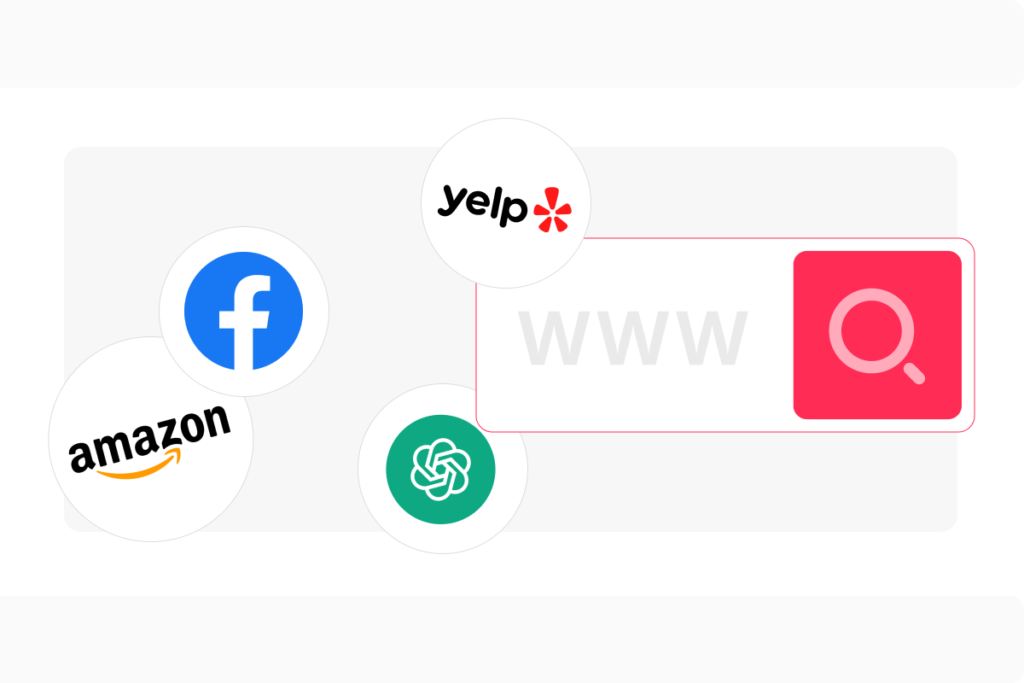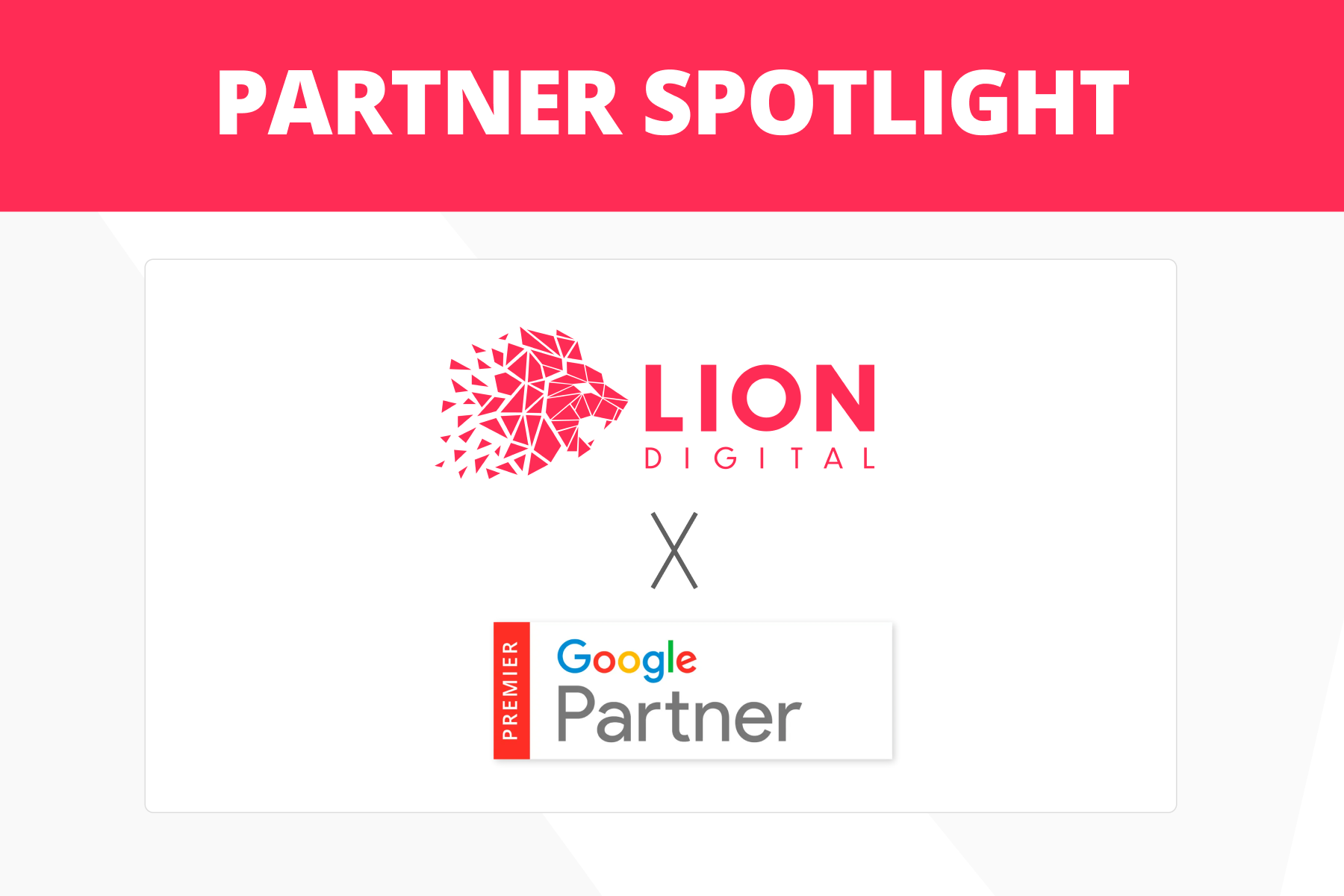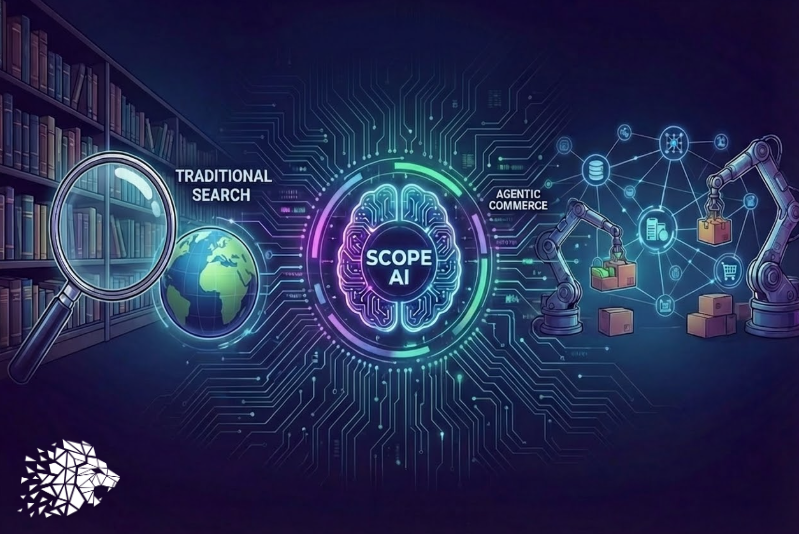
In the fast-paced digital realm, the way eCommerce customers search for and consume information is evolving more and more rapidly. Gone are the days when traditional search engines were the sole gatekeepers of online information. Today, there are so many more ways to target what you’re looking for online, which impacts the search experience and how organisations implement their campaigns. In the Second Part of our blog series on the evolution of online search, we’ll explore the shifting landscape beyond traditional search engines and how you can leverage these changes for your business.
The Rise of Social Media as a Search Engine
Social media has transformed from mere tools for social interaction into powerful search platforms in their own right. Platforms like Instagram, TikTok, Facebook, and Twitter are now hubs for news, reviews, recommendations, and real-time information. Users no longer just connect with friends; they search for products, services, and answers to their eCommerce enquiries on these platforms. Savvy eCommerce businesses and entrepreneurs can leverage social media to showcase their offerings, gather customer feedback, and engage with their audience more meaningfully.
User-Generated Content: A Game-Changer in Online Search
User-generated content, such as reviews, ratings, and comments, has become a cornerstone of online search. Platforms like Yelp, Trustpilot, and TripAdvisor aggregate user reviews to provide valuable insights for consumers. Clever retailers and entrepreneurs can use this feedback to improve their products and services while building confidence and loyalty with potential customers. By actively managing their online reputation and encouraging customers to leave reviews, businesses can enhance their visibility and credibility in the eyes of consumers.
Vertical Search Engines: Niche Markets, Targeted Results
Vertical search engines cater to specific verticals such as products, services, jobs, and local business listings. These specialised search engines, like Amazon, Google Shopping, SEEK, and Expedia, offer highly targeted and relevant search results tailored to the user’s intent. Smart eCommerce organisations and business owners operating in niche markets can optimise their presence on these platforms to increase their visibility among their target audience and drive conversions.
Artificial Intelligence: Advances in Information Retrieval
While AI is not a straightforward alternative to Google, Bing, Yahoo!, and other search engines, there is search potential in large language models like ChatGPT, Gemini, Bert, and others as they can enhance user experience. Depending on what the user is searching for, AI can deliver more intuitive, conversational responses that are easier to digest when searching for large chunks of information or explanations. Google still dominates real-time search results, as AI uses stored data to deliver results.
Search engines are designed to crawl, index, and scour web page indexes to deliver relevant, up-to-date search results from the internet based on keywords and query relevance. Whereas ChatGPT relies only on its knowledge base and training data to generate human-like, contextually relevant, and natural language responses based on input. For example, ChatGPT cannot tell when the flight departs, but it can provide summaries and explanations of aircraft and airport logistics.
The natural next step in search evolution is integrating LLMs into search engines. In May 2024, Google announced the planned global rollout of “AI Overviews.” The goal is for billions of Google users to see an AI-generated summary at the top of their search results, which Google representatives claim is only the beginning. Thus, rather than replacing search engines, large language models employing AI and Natural Language Processing algorithms would help improve the user’s search experience.
Points to Consider: Maintain Your Business Focus
Engagement is Essential: With social media and user-generated content, engagement is crucial. E-tailers and entrepreneurs should focus on creating compelling and shareable content that resonates with their audience.
Consistency is Key: Consistency in branding and messaging across all platforms is necessary for building a strong online presence and brand identity.
Analytics and Insights: Utilise analytics tools to track the performance of your campaigns and comprehend what resonates with your audience. This will help you refine your strategies and improve your results over time.
Keep Abreast of AI Advancements: Follow field updates and integrate AI into your business strategy in the early stages.
To stay ahead, retailers need to be flexible enough to adapt rapidly to the latest developments in online search. By leveraging social media, user-generated content, vertical search engines, and AI tools, eCommerce brands can enhance their online visibility and audience engagement to drive business growth.
At LION Digital, we understand the challenges of the eternally evolving online search landscape. Our team of experts can help you develop and implement strategies to optimise your digital presence across all the abovementioned platforms. From content creation and social media management to search engine optimisation and AI, we have the eCommerce expertise to help you achieve your digital marketing goals.








